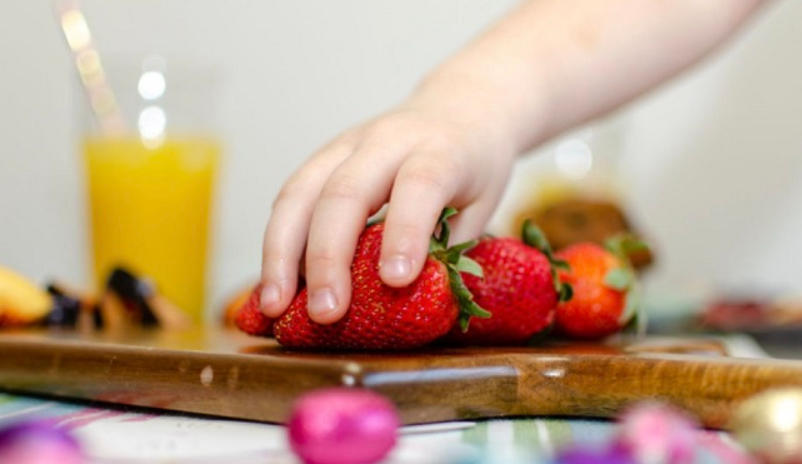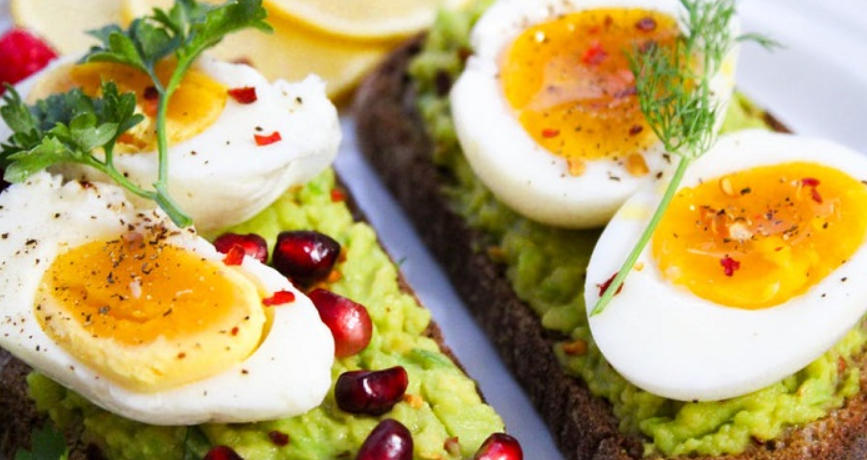How to strengthen children’s memory with food
In order for children’s brains to develop properly, nutrition is crucial. Therefore, you should know what is best for children to eat to improve their memory. Early development, concentration, and learning ability are influenced by nutrient intake. This article explains how food affects brain development and introduces useful foods for children. Learn how to strengthen your memory with meals, breakfasts, and snacks.
How does nutrition affect brain development and memory?
During the first few years of a child’s life, the brain grows the most. A child’s brain reaches 80% of its adult weight by the age of 2. According to a 2017 study, these nutrients are essential for early brain development, as they influence brain growth and function:
protein;
carbohydrate;
long-chain unsaturated fatty acids;
choline;
iron;
copper;
zinc;
vitamin A;
vitamin B group;
Vitamin C;
vitamin D;
iodine;
selenium
Brain development occurs during the first three years of a child’s life. During this period, if the brain does not receive enough nutrients and does not grow sufficiently, it can cause long-term problems with learning, mental health, and employment.
At the beginning of brain development, nutrition is one of the most important ways to strengthen memory, but social support, dependence, and reducing pain and inflammation also play a role. Children’s behavior and concentration can also be affected by diet. It has been found that a diet high in simple sugars and saturated fat can increase the risk of attention deficit hyperactivity disorder (ADHD).
How can children strengthen their memory by eating certain foods?
1. egg
Children enjoy eating eggs because they are considered to be one of the most nutritious foods. In addition to being rich in essential nutrients for brain development, this food also contains:
choline;
vitamin B12;
protein;
selenium
In the first 1000 days of a child’s life, choline can contribute to brain development and protect brain cells from damage. Eggs provide most of the choline people need. The yolk of a large egg contains 125 mg of choline, which is half the daily requirement for children between the ages of 4 and 8.
For breakfast and dinner, your child should eat a boiled egg or an omelette with vegetables.
2. Berries
Anthocyanins are very useful plant compounds found in berries. The combination has a variety of beneficial effects on the brain. Using berries can increase blood flow to the brain, reduce inflammation, and strengthen the formation of new nerve cells, as well as some proteins that contribute to learning and memory.
Children’s brain function has been positively affected by berries in several studies. In a study involving 14 children aged 7 to 10, children who consumed 200 grams of blueberry or blue raspberry drink remembered words significantly better.
Also, in 6- to 8-year-old children, low consumption of berries and other fruits and vegetables leads to poorer mental performance.

3. Seafood
In addition to being rich in nutrients, seafood contains omega-3 fats, iodine and zinc, all of which are crucial for brain health. As an example, zinc is essential for the production and development of nerve cells, and omega-3 fats are vital for brain function. Iodine is also necessary for the body to produce thyroid hormones, which are important for brain development.
Children and adolescents who consume seafood perform better mentally in many studies. As a matter of fact, eating fish improves IQ scores and academic performance. Furthermore, children’s mental performance can be adversely affected by a lack of omega-3 fats in their blood.
4. Green leafy vegetables
Getting your child to eat leafy greens may not be easy, but it’s worth it. Your baby’s brain health depends on these nutritious vegetables. The brain is protected by compounds in leafy greens like spinach, kale, and lettuce, such as folate, flavonoids, carotenoids, and vitamins E and K1.
It has been found that children who consume enough folate have better mental performance than children who do not consume enough folate. Additionally, carotenoid accumulates in the retina and improves vision.
5. cocoa
One of the richest sources of flavonoid antioxidants is cocoa and cocoa products. By reducing inflammation and protecting the brain, these compounds contribute to brain health. The consumption of cocoa increases blood flow to the brain and improves visual processing. Even adults can benefit from this substance in some activities.

6. Orange
Orange is one of the most popular citrus fruits and is considered one of the favorite fruits of children because of its sweet taste. Oranges improve your child’s general health as well as his memory and mental health.
Research has shown that oranges and orange juice increase blood flow to the brain and stimulate nerve cell activity. Oranges are also high in vitamin C, which is essential for brain development and neurotransmitter production.
Adults who get enough vitamin C can perform better in activities that require concentration, memory, attention, quick decision-making, and judgment.
7. yogurt
Children’s memory can be boosted by eating yogurt for breakfast or as a snack. The body requires iodine for brain development and good mental performance, which is found in dairy products such as yogurt.
Mental disorders are more likely to occur in children who do not get enough iodine. Especially in poor areas, pregnant women and children are more likely to suffer from an iodine deficiency. Yogurt is also rich in protein, zinc, vitamin B12, and selenium in addition to iodine.
The importance of eating breakfast for children’s mental performance cannot be overstated. The brains of children require more glucose than those of adults. Children’s brain health can be greatly improved by eating breakfasts rich in brain substances, such as yogurt with berries, cocoa, pumpkin seeds, oats, nuts and bananas.
8. Foods rich in iron
Among children, iron deficiency is one of the most common complications. Iron deficiency can affect a child’s mental development and learning. ADHD is also associated with iron deficiency.
You should add iron-rich foods to your child’s diet to prevent iron deficiency. Foods such as these include:
Meat, poultry, and seafood;
types of beans;
spinach
In contrast to non-heme iron found in plant foods, heme iron found in meat foods is better absorbed by the body.
Iron and non-iron sources should be mixed in your child’s diet. Other iron-rich foods can also be made more absorbable by adding vitamin C. Spinach salad, for example, can be made more absorbable by adding lemon juice.
9. Nuts and seeds
Nuts and seeds are also rich in nutrients that are good for brain function, such as:
vitamin E;
zinc;
folate;
iron;
Protein.
Children’s brains contribute useful fats, protein, and fiber to their diets, which improve the quality of the diet, which has an important relationship with learning and memory.
10. Beans and lentils
It is important for children’s brain development and normal growth to consume beans and lentils. A glass of cooked lentils contains 2.52 mg of zinc, which is half the daily requirement for children ages 4 to 8. Soups, stews, and soups can all be made using beans. Red beans are ideal for younger children due to their softness.
11. Oat
One of the low sugar foods that can improve mental abilities is halimferangi with oats. Children can enjoy halimperangi made with whole-grain oats with nut butter or roasted nuts. Eggs or yogurt are good sources of protein for children who are allergic to nuts.
Children’s breakfast that is ideal for preschoolers
Memory-boosting breakfast for children
The following breakfasts can be eaten by children before going to school to maximize their concentration and mental activity:
Whole grain bread and boiled or half-cooked eggs;
A bowl of haleem oats with nut butter or berries;
Spinach, Greek yogurt, blueberries, and apples blended into a drink;
Salmon and avocado on whole grain bread.
Hummus (made from crushed chickpeas) and carrots;
Avocado mashed with barley bread;
Oats, cocoa powder, and nut butter protein snack;
Raw nuts, seeds, and coconut make up this snack.
1. Does nutrition strengthen children’s memory?
Yes, of course. This has been proven by scientific studies. Food and snacks play a crucial role in the brain’s development, strengthening a child’s intelligence and learning abilities during the first three years of life.
2. How can children’s intelligence be strengthened?
Your child’s intelligence and memory can be boosted by eating eggs, berries, seafood, and green leafy vegetables. Foods rich in iron and cocoa, such as oranges, yogurt, beans and lentils, should be included in their diet.


